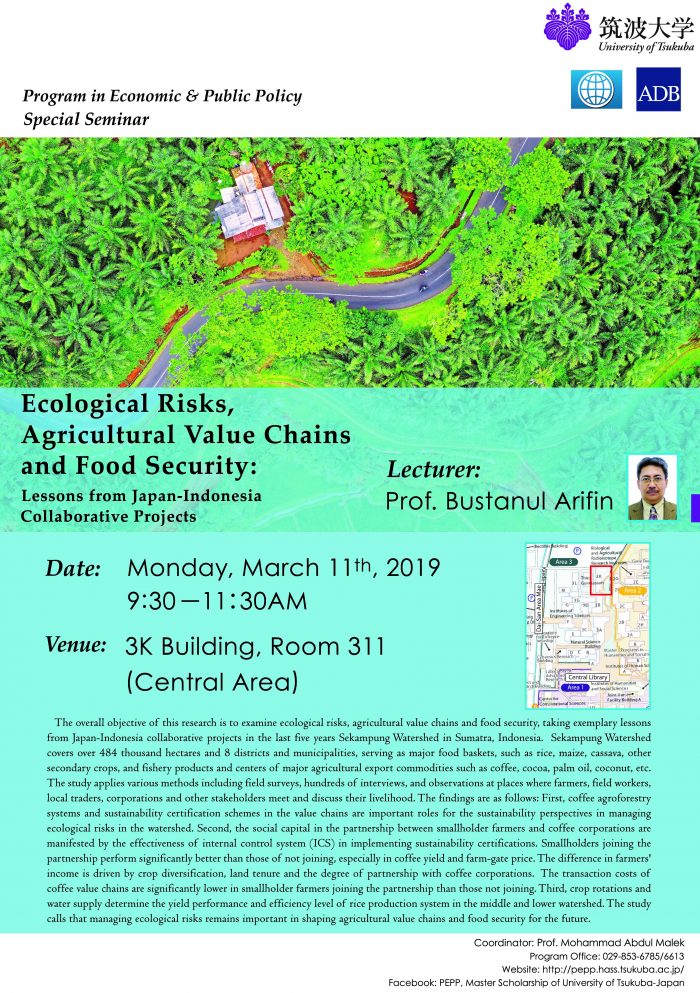PEPP Seminar: Ecological Risks, Agricultural Value Chains and Food Security: Lessons from Japan-Indonesia Collaborative Projects (Mar 11)
2019/03/07
Title:Ecological Risks, Agricultural Value Chains and Food Security: Lessons from Japan-Indonesia Collaborative Projects
Presenter: Prof. Dr. Bustanul Arifin
Date: Monday, March 11, 2019
Time: 9:30 – 11:30
Venue: 3K Building, Room 311 (Central Area)
Coordinator: Prof. Mohammad Abdul Malek
Abstract: The overall objective of this research is to examine ecological risks, agricultural value chains and food security, taking exemplary lessons from Japan-Indonesia collaborative projects in the last five years Sekampung Watershed in Sumatra, Indonesia. Sekampung Watershed covers over 484 thousand hectares and 8 districts and municipalities, serving as major food baskets, such as rice, maize, cassava, other secondary crops, and fishery products and centers of major agricultural export commodities such as coffee, cocoa, palm oil, coconut, etc. The study applies various methods including field surveys, hundreds of interview, and observations at places where farmers, field workers, local traders, corporations and other stakeholders meet and discuss their livelihood. The findings are as follows: First, coffee agroforestry systems and sustainability certification schemes in the value chains are important roles for the sustainability perspectives in managing ecological risks in the watershed. Second, the social capital in the partnership between smallholder farmers and coffee corporations are manifested by the effectiveness of internal control system (ICS) in implementing sustainability certifications. Smallholders joining the partnership perform significantly better than those of not joining, especially in coffee yield and farm-gate price. The difference in farmers’ income is driven by crop diversification, land tenure and the degree of partnership with coffee corporations. The transaction costs of coffee value chains are significantly lower in smallholder farmers joining the partnership than those not joining. Third, crop rotations and water supply determine the yield performance and efficiency level of rice production system in the middle and lower watershed. The study calls that managing ecological risks remains important in shaping agricultural value chains and food security for the future.













